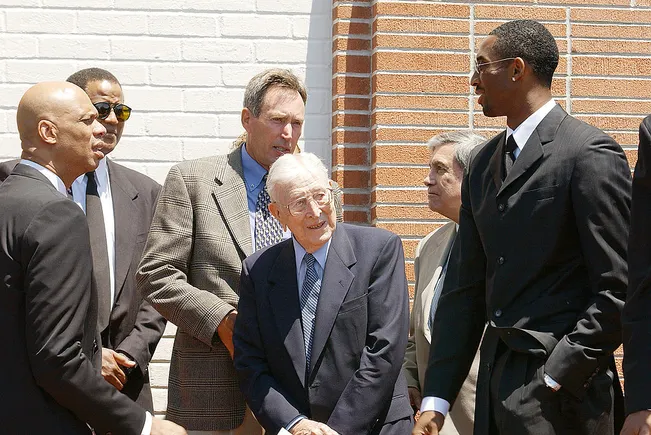William S. Kane, a former CHRO, is a professor in the Rutgers School of Management and Labor Relations and co-author of the book, Leading Business Teams: The Definitive Guide to Optimizing Organizational Performance.
Managers play a critical role in guiding companies through these rapidly changing times, but too many of them are not equipped for the job. A report by the Center for Creative Leadership found that nearly 60% of managers “never received any training when they transitioned into their first leadership role.” Another report, by the consulting firm West Monroe, found that 59% of managers who supervise one to two people, and 41% of managers who supervise three to five, received “no managerial training at all.”
The consequences are huge.
Gartner, the global research and advisory firm, found that a staggering 60% of new managers fail within their first two years, largely due to a lack of training for the role. Those who stick around may lose confidence, feel overwhelmed and become frustrated by the lack of guidance.
William S. Kane
Permission granted by Rutgers School of Management and Labor Relations
Make no mistake: All of this trickles down to the manager’s staff.
In a survey led by SHRM, 84% of workers said “poorly trained people managers create a lot of unnecessary work and stress.” And Gallup data showed that many employees are disengaged and have an eye on the door.
The organizational implications are far-reaching: business disruption, reduced productivity, increased costs and even compliance issues.
In our tightening labor market and economy, we must find a way to give our managers the proper training, support and tools they need to produce the desired results.
The challenge
As a former CHRO now teaching human resource management at Rutgers University, I reported to a dozen CEOs during my 35-year career. The work environments were mostly high-stakes: start-ups, turnarounds, mergers and organizations deep in distress or transformation.
In these high-pressure situations, one thing became crystal clear: The ability to lead and manage people isn’t just important — it’s everything. But I noticed, time and again, that some leaders thrived while others sputtered and stalled out. I wanted to know why.
Professionally obsessed, I explored leadership models across industries and geographies in search of the best way to train new managers and execute a business plan. I conducted extensive interviews. I hit libraries, bookstores and the internet. I studied management frameworks from multiple disciplines, all in the hope of finding that elusive answer.
It finally came, not from a CEO or a consultant, but from a college basketball coach.
The exemplar
John Wooden is royalty in the sports world.
He led the UCLA Bruins to a record 10 NCAA men’s basketball national championships, including seven in a row from 1967 to 1973. His teams won 88 consecutive games, a feat that has never been replicated. Fittingly, he was inducted into the Naismith Memorial Basketball Hall of Fame and named ESPN’s “Coach of the Century.”
My friend and colleague Andy Hill, who played on three of those national championship teams, introduced me to Coach Wooden in 2001. During our many discussions, I came to learn that his formula for success on the basketball court also works in the corporate world.
With common fundamental underpinnings such as teamwork, goal orientation and an emphasis on metrics, the best coaches and business managers know how to get peak performance from their teams. They provide an organizational vision and strategy, implement structure and systems, recruit and develop talent, align individual capabilities with responsibilities and give tactical guidance through X’s and O’s.
Importantly, they understand that learning is fundamental to development and high performance. Learning is related to action, and behavior is changed when people transform the way in which they think.
That is why training is so critical for new managers and why so many of them struggle without it.
The solution
Many organizations lack the time, budget and commitment to train new managers. Sometimes, there is also a shortage of mentors and role models to emulate.
Collaborating with Coach Wooden in his twilight years, Andy and I translated his philosophies into a powerful, practical training model for today’s people managers. We call it, appropriately, the SCORE paradigm. It has five action-oriented pillars:
- Staffing: attracting and selecting talent
- Cultivating culture: defining how people should interact
- Organizing and planning: the need for direction and focus
- Reinforcing desirable behavior: managing performance
- Engaging the organization: a leader’s role and responsibility
We believe SCORE solves today’s training conundrums.
For example, we know that managers spend a good deal of their day communicating. Yet, self-expression can be a complex struggle, especially in real time. Managers are constantly called upon to take incomplete, ambiguous and imprecise information and interpret it, synthesize it and break it into bite-size, understandable pieces. It’s no easy task.
To strengthen a manager’s communication abilities, SCORE highlights proven practices to create clear messaging for a targeted audience, select the appropriate channel, seek timely feedback and foster an open dialogue. Managers adopting these mindful methods improve their overall communication effectiveness while enhancing team connectivity.
Another management dilemma involves handling conflict. Some managers avoid difficult discussions or decisions, or they procrastinate, because they are driven by a need to be liked. This could backfire. While a certain level of natural workplace tension is normal and healthy, unchecked conflict will tear a team apart.
Managers should address sensitive matters early, stay objective, clarify expectations and guide employees toward collaborative problem-solving. SCORE outlines research-based strategies to apply as situations dictate, from accommodation to compromise. It also explores improvisation, an underrated conflict management tool that can help with smoothing edges, strengthening relationships and even sparking innovation.
Coach Wooden famously said, “The team with the best talent almost always wins.” He understood that talent alone doesn’t ensure victory; a team’s culture is the keystone to high performance and attaining a competitive edge. The coach or the CEO can do almost everything right, but if the culture is wrong, challenges will never be met.
Properly trained managers establish the “right” culture by embracing values-based behaviors, building trust and rapport, and enhancing their team’s psychological safety. As cultural “influencers,” they drive engagement, inclusion, productivity and the alignment between company goals and employees’ daily experiences. And, if done right, their employees might just stop dreading Sunday nights and look forward to work on Monday morning.
As organizations navigate the rise of AI, the changing political landscape, and the many other challenges facing corporate America in 2025, it’s more important than ever to ensure that new managers are up to the task. A 60% failure rate is not acceptable. We must do a better job of training.






Leave a Reply